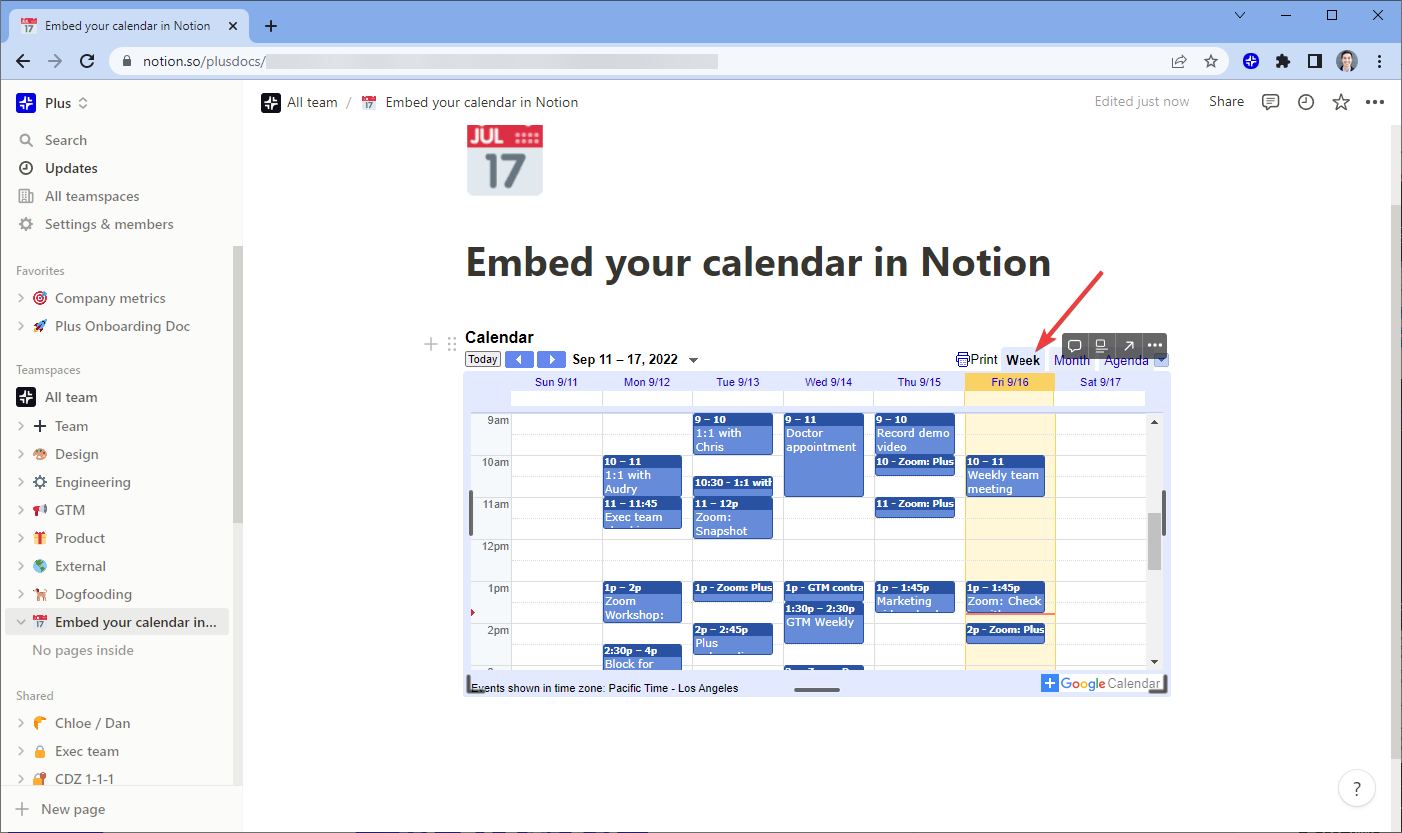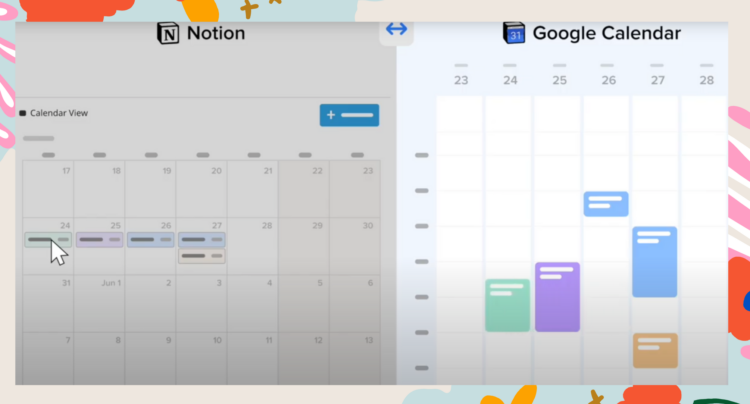Connecting Google Calendar with Notion: A Complete Information to Seamless Scheduling
Associated Articles: Connecting Google Calendar with Notion: A Complete Information to Seamless Scheduling
Introduction
With nice pleasure, we’ll discover the intriguing subject associated to Connecting Google Calendar with Notion: A Complete Information to Seamless Scheduling. Let’s weave attention-grabbing data and supply recent views to the readers.
Desk of Content material
Connecting Google Calendar with Notion: A Complete Information to Seamless Scheduling

The trendy skilled juggles a number of platforms to handle their each day life. E mail, mission administration instruments, and, crucially, calendars, all play important roles. For a lot of, Google Calendar is the go-to scheduling answer, a well-known and highly effective software. However what if you wish to combine its performance with the versatile workspace of Notion? This complete information explores the varied strategies for connecting Google Calendar with Notion, highlighting their strengths and weaknesses, and providing suggestions for optimum workflow integration.
Understanding the Want for Integration
Earlier than diving into the how-to, let’s perceive why connecting Google Calendar and Notion is helpful. Google Calendar excels at scheduling appointments, managing occasions, and sharing availability. Notion, alternatively, is a robust all-in-one workspace permitting for note-taking, mission administration, database creation, and extra. The synergy between these two platforms unlocks important productiveness positive aspects:
- Centralized View of Your Schedule: As an alternative of switching between functions, you may view your Google Calendar occasions straight inside your Notion workspace, offering a holistic view of your commitments and deadlines.
- Enhanced Contextualization: Combine calendar occasions with associated Notion duties, tasks, or notes. As an illustration, hyperlink a gathering in your calendar to its corresponding mission web page in Notion for instant entry to related data.
- Automated Job Creation: Sure integration strategies can automate process creation in Notion based mostly on upcoming calendar occasions, guaranteeing you by no means miss a deadline or preparation step.
- Improved Collaboration: Share a consolidated view of your schedule with staff members working throughout the Notion workspace, fostering higher collaboration and transparency.
- Customizable Dashboards: Design Notion dashboards that show your calendar occasions alongside different essential data, creating a personalised productiveness hub.
Strategies for Connecting Google Calendar and Notion
Sadly, there is not a direct, built-in integration between Google Calendar and Notion. Nevertheless, a number of efficient strategies obtain the same consequence, every with its personal benefits and downsides:
1. Utilizing the Notion Calendar View:
That is the only methodology. Notion’s built-in calendar view lets you manually enter occasions. Whereas it does not robotically sync with Google Calendar, you may manually add occasions out of your Google Calendar to your Notion calendar. This strategy is appropriate for these with few calendar entries or those that choose a handbook course of.
- Professionals: Easy, requires no exterior instruments or complicated setups.
- Cons: Not automated, requires handbook knowledge entry, liable to inconsistencies if not diligently maintained. Would not supply bidirectional syncing.
2. Using Third-Celebration Integrations (Zapier, Make, Integromat):
These automation instruments act as bridges between Google Calendar and Notion. They will let you create "Zaps" or "Eventualities" that robotically set off actions in Notion based mostly on occasions in Google Calendar. For instance, a brand new Google Calendar occasion might robotically create a brand new process or database entry in Notion.
- Professionals: Automation eliminates handbook knowledge entry, ensures consistency, gives extra complicated workflows. Some companies supply bidirectional syncing capabilities.
- Cons: Requires a subscription to the third-party service (typically with various pricing tiers), may be complicated to arrange, and should require some technical understanding. Potential for delays resulting from API limitations.
3. Utilizing the Notion API (Superior Customers):
For builders or technically proficient customers, the Notion API gives direct entry to the Notion database. This permits for constructing customized integrations that exactly tailor the synchronization between Google Calendar and Notion. This methodology gives the best flexibility however requires important coding experience.
- Professionals: Most flexibility and customization, permits for extremely particular integrations.
- Cons: Requires superior programming expertise, important time funding for setup and upkeep, potential for errors if not applied accurately.
4. Using Google Calendar’s Public Calendar Characteristic (Restricted Performance):
You may make your Google Calendar public and embed the iFrame right into a Notion web page. This gives a visible illustration of your calendar inside Notion. Nevertheless, this solely gives a read-only view, and you can not work together with the calendar straight inside Notion.
- Professionals: Easy to arrange, gives a visible illustration of the calendar.
- Cons: Learn-only entry, no interplay or knowledge switch to Notion, safety issues if not correctly configured.
Selecting the Proper Methodology:
The perfect methodology will depend on your technical expertise, the complexity of your workflow, and your funds.
- For informal customers with restricted wants: The handbook entry methodology utilizing Notion’s calendar view is adequate.
- For customers needing automation and average complexity: Zapier, Make, or Integromat supply a stability of performance and ease of use.
- For superior customers with particular necessities: The Notion API permits for full customization however requires important technical experience.
Greatest Practices for Integration:
Whatever the chosen methodology, following these greatest practices ensures a clean and environment friendly workflow:
- Outline Clear Goals: Earlier than establishing any integration, clearly outline what you need to obtain. It will information your alternative of methodology and show you how to configure the mixing successfully.
- Check Totally: After establishing the mixing, completely check it with varied situations to make sure it capabilities as anticipated.
- Common Upkeep: Often evaluation and preserve your integration to make sure accuracy and forestall errors.
- Information Safety: Be conscious of information safety implications, particularly when utilizing third-party companies or sharing your calendar publicly.
- Take into account Bidirectional Syncing: If potential, go for bidirectional syncing to make sure knowledge consistency between Google Calendar and Notion.
- Begin Small and Iterate: Start with a easy integration and regularly add complexity as wanted.
Conclusion:
Connecting Google Calendar with Notion enhances productiveness by centralizing scheduling data inside your most well-liked workspace. Whereas a direct integration is absent, a number of efficient strategies exist, every catering to completely different technical talent ranges and workflow wants. By rigorously contemplating your necessities and selecting the suitable methodology, you may unlock the ability of each platforms and streamline your each day duties. Keep in mind to prioritize knowledge safety and frequently preserve your integration to maximise its advantages and guarantee a seamless workflow. The secret’s discovering the stability between automation and management that most accurately fits your particular person wants and preferences.






Closure
Thus, we hope this text has offered useful insights into Connecting Google Calendar with Notion: A Complete Information to Seamless Scheduling. We thanks for taking the time to learn this text. See you in our subsequent article!
